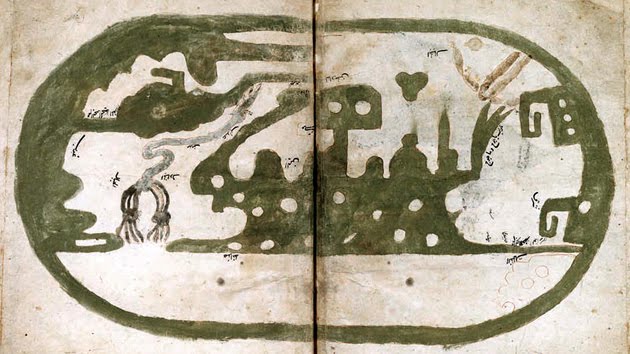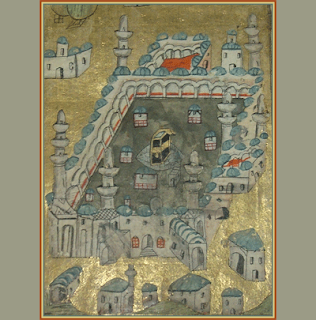When Muslim armies invaded Spain in the 7th century they brought their knowledge of Greek, Persian and Jewish knowledge with them. This knowledge, along with a respect of the cultural mix in Spain at the time, and a ready accessible paper source, lead to the beginning of what is termed the Islamic Golden period in Spain. The capital, Cordoba, became a cultural centre attracting scholars, poets and musicians from all over Europe. The Caliph Al-Hakam II (who ruled from 961 to 976) created a library within the Cordoba mosque that held hundreds of thousands of books that where made available to everyone. The cultural and intellectual advancement of the Muslims in Spain during this time lead to the enlightenment of Europe and is the basis for learning today.
Muslim's contribution to science
Cordoba is in southern Spain on the Iberian peninsular and from 929 to 1031 A.D. it was ruled by the Caliphate (a system of government) of Cordoba. This Caliphate not only ruled the Iberian Peninsula but also North Africa, all form the city of Cordoba. In the 10th century the city was considered to be one of the most civilized in Europe. One of its most famous buildings was the Cordoba Mosque. This building housed the largest university in Europe at the time with over 4000 students. Caliph Al-Hakam II (who ruled from 961 to 976) created a library within the mosque that consisted of an estimated 400,000 - 600,00 books, with a catalogue of 44 volumes listing title and author. These books were made available to everyone.
The Islamic libraries were during the Islamic golden age where much more advanced than those throughout the rest of Europe. Apparently, Muslim societies had access to paper during this time, allowing books to be printed, whereas the western world did not. Paper was invented in China in the first century, but it was Muslim merchants who bought it to the west were it was put to good use in developing the amazing book culture that was to follow. A timeline of the history of paper here:
The court in Cordoba was open to the ideas of Muslims, Jews and Christians alike, and as a result was the great meeting place for intellectuals of the time. Cordoba was, for a few centuries, a place where Islam and Christianity coexisted peacefully. This was a time of great information exchange, it is where the culture of the Arabs came into contact with the west, and therefore, the western world was introduced to the ideas of the ancient Greeks and Romans. Here's a link to a really interesting podcast relating to the cross-pollination of ideas during the golden age of Islam in Spain:
The Arabs that occupied Spain during the Islamic golden period had a vastly superior intellectual culture than anywhere else in the world at the time. They where studying advanced mathematics, astrology and science, as well as developing a sophisticated library and book culture, while the rest of Europe was still struggling through the dark ages. It was also a time of great respect for the knowledge of all races. The fact that we in the western world are happy to inherit the legacy of the Arab occupation of Spain, but are reluctant to acknowledge its Islamic origin is understandably something that still resonates.
-------------------------------------------------------------------------------------------------
References
Muslim Spain (711-1492) 2009, BBC, viewed 14 May 2010, (http://www.bbc.co.uk/religion/religions/islam/history/spain_1.shtml)
Rojunson 2009, Medina Azahara 3D, 29 January, viewed 15 May 2010. (http://www.youtube.com/watch?v=RDXCSEygUdo&feature)




